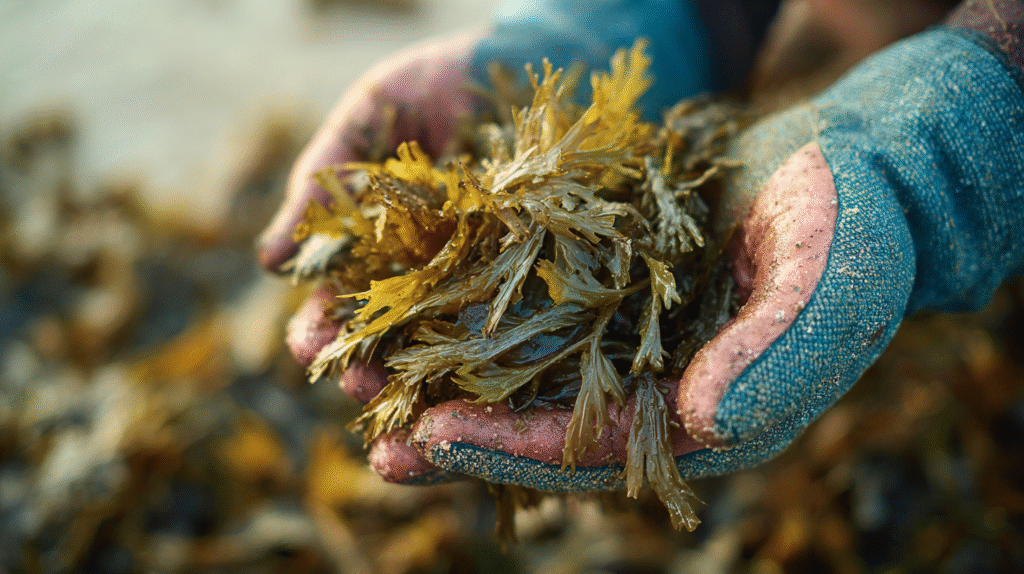The James Hutton Institute has joined a ground-breaking new research project aiming to boost soil health and crop performance through the use of sugar kelp extracts.
The initiative – Assessing Sugar Kelp Extracts as a Nutrient Management Tool (SKE-NMT) – is led by Algapelago Marine Ltd in collaboration with Atlantic Mariculture Ltd and the UK Agri-Tech Centre. Backed by Innovate UK and industry partners, the work will explore how seaweed-based biostimulants can reduce reliance on synthetic fertilisers by supporting healthy soil biology and improving the efficiency of plant nutrient use.
The research will pave the way for larger-scale field trials, focusing on how kelp extracts can improve nutrient use efficiency (NUE) and enhance crop resilience. Previous studies indicate that seaweed extracts strengthen the soil microbiome – the network of microbes around plant roots – which helps recycle nutrients and improve yields.
This latest programme builds on earlier Innovate UK-funded research into low-energy kelp extraction techniques for both soil and livestock systems. Alongside soil health, the project will also examine the role of sugar kelp extracts as livestock feed additives, with the aim of improving feed efficiency sustainably.
Dr Gordon McDougall, research leader at the Hutton, said: “We are delighted to bring our expertise in seaweed biochemistry, biostimulants and crop trials to this important research project. Understanding how these novel low-energy seaweed extracts can maintain or improve crop yield whilst altering the soil microbiota and reducing inputs of nitrogen and phosphate fertilisers could provide new approaches for greener agriculture.”
Luke Ansell, head of operations at Algapelago Marine, added: “We’re thrilled to have secured funding for a second Innovate UK project focused on the development of kelp biostimulants. The project aims to address data gaps and build the evidence case for the role of cultivated seaweed extracts in modern crop production. The SKE-NMT will test the hypothesis that sugar kelp extracts can improve plant nutrient use efficiency here in the UK.”
Cultivated kelp offers a renewable, scalable alternative to wild harvesting, but its potential in biostimulant production is still being fully understood. The SKE-NMT project aims to build a new supply chain for farmed seaweed, linking marine and land-based systems as part of the shift towards more sustainable food production.
Trials will measure how crops respond to kelp extracts under reduced fertiliser conditions, while also assessing impacts on soil microbial communities. The ultimate goal is to cut fertiliser use, lower carbon emissions, and improve soil quality – all without compromising yields.
With farmers under increasing pressure to reduce inputs and environmental impact, seaweed-based solutions could provide a natural, effective way forward. A thriving seaweed farming industry could also deliver skilled, stable jobs in coastal communities, helping to break the cycle of seasonal employment.
By integrating crop trials, soil science and supply chain development, SKE-NMT puts sugar kelp at the centre of a greener future for UK agriculture.


